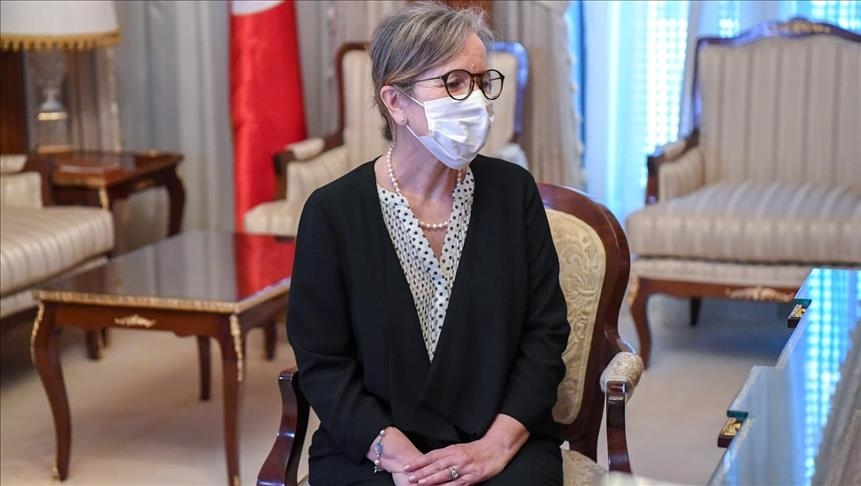Who is Najla Bouden, Tunisia’s first female prime minister?
Bouden named by Tunisian president to form new government

TUNIS, Tunisia
Tunisian President Kais Saied on Wednesday named Najla Bouden as the country’s first female prime minister, two months after assuming executive authority.
Bouden, 63, was assigned to form a new government amid growing domestic and international discontent over the president’s power seizure.
"For the first time in Tunisia’s history, a woman will head a government," Saied said in a video posted on the Presidency’s Facebook page.
The Tunisian leader said he will work with Bouden “with a firm will and determination to combat corruption and chaos that pervaded in many state institutions."
The under-pressure president urged the new prime minister to form a government “in the coming hours or days” since “a lot of time has been wasted.”
On July 25, Saied ousted the government, suspended parliament, and assumed executive authority. While he insists that his "exceptional measures" are meant to "save" the country, critics accuse him of orchestrating a coup.
Little-known engineer
Born in Tunisia’s central Kairouan province in 1958, Bouden is a geology professor at the National School of Engineers in the capital Tunis.
Before her appointment as prime minister, she was assigned by the Ministry of Higher Education and Scientific Research to implement programs with the World Bank, according to the official Tunisian News Agency.
In 2011, she was appointed director-general in charge of quality at the Ministry of Higher Education.
The little-known engineer does not have any political affiliation, according to an Anadolu Agency reporter.
Bouden is set to inherit a soaring political and economic crisis that has gripped the North African country over the past few years and which has worsened since Saied’s “exceptional measures.”
On Sep. 26, Saied issued a decree to expand his legislative and executive powers. He also abolished the body established in 2014 to monitor the constitutionality of laws.
Accordingly, the President of Tunisia was given the authority to issue legislative texts through presidential decrees after consulting the Cabinet.
Under the decree, the Cabinet will no longer be responsible to the parliament, but to the president. The president will appoint the prime minister and determine Cabinet members and policy decisions of the government.
Tunisia also faces an unprecedented outbreak of the COVID-19 strains in most states, causing a rapid spread of the virus.
Many in Tunisia hope that Bouden will revive the country’s image as the only Arab country that succeeded in carrying out a democratic transition among other Arab countries that also witnessed popular revolutions that toppled the ruling regimes, including Egypt, Libya, and Yemen.
*Writing by Ibrahim Mukhtar
Anadolu Agency website contains only a portion of the news stories offered to subscribers in the AA News Broadcasting System (HAS), and in summarized form. Please contact us for subscription options.


